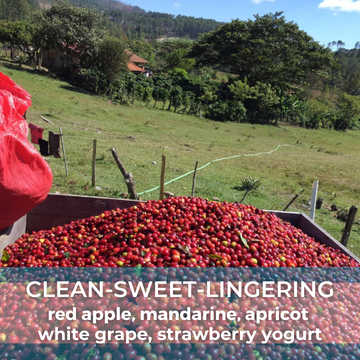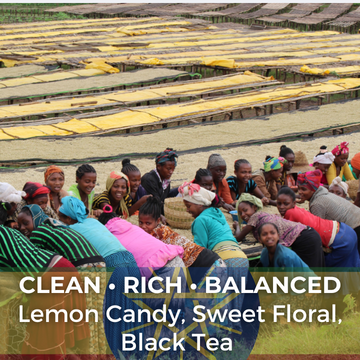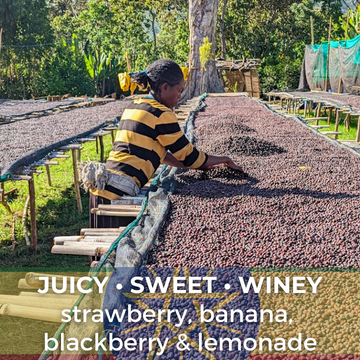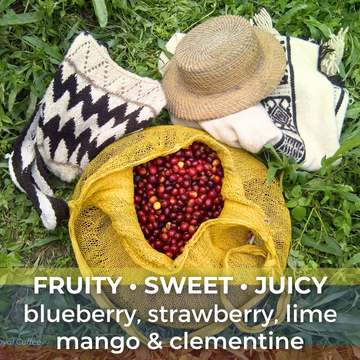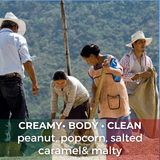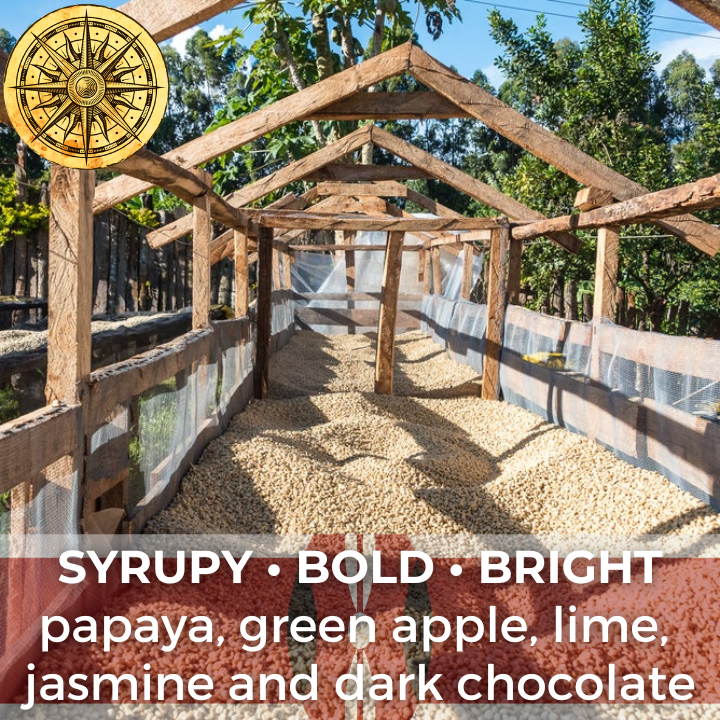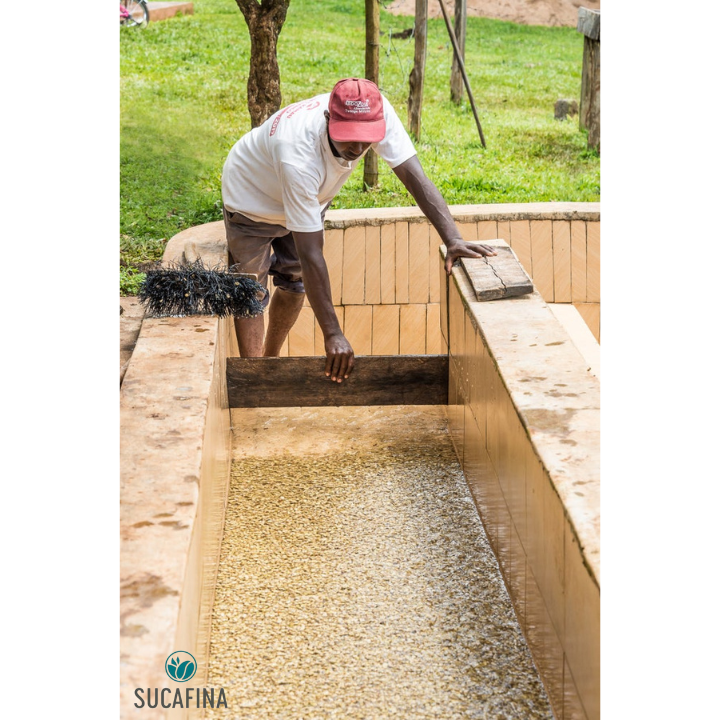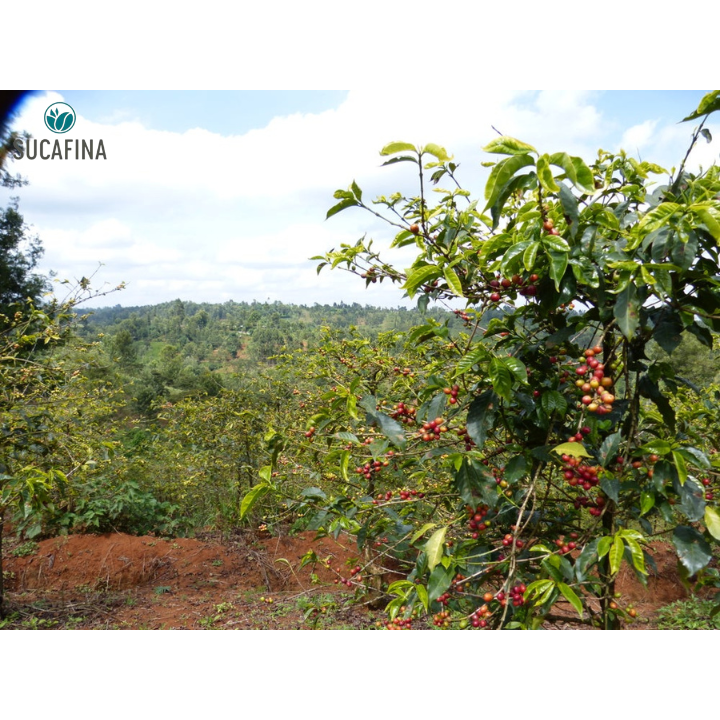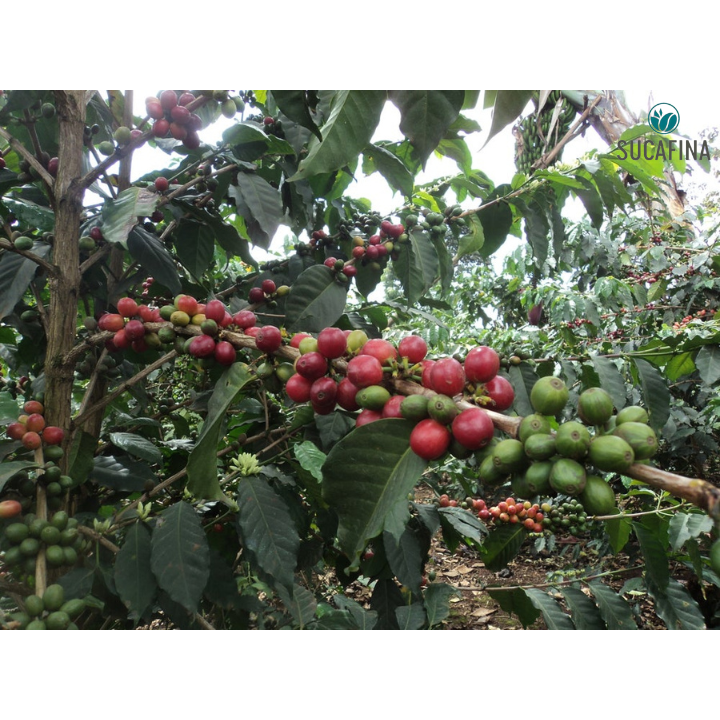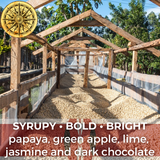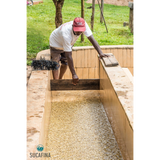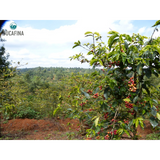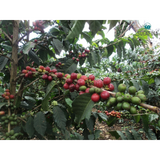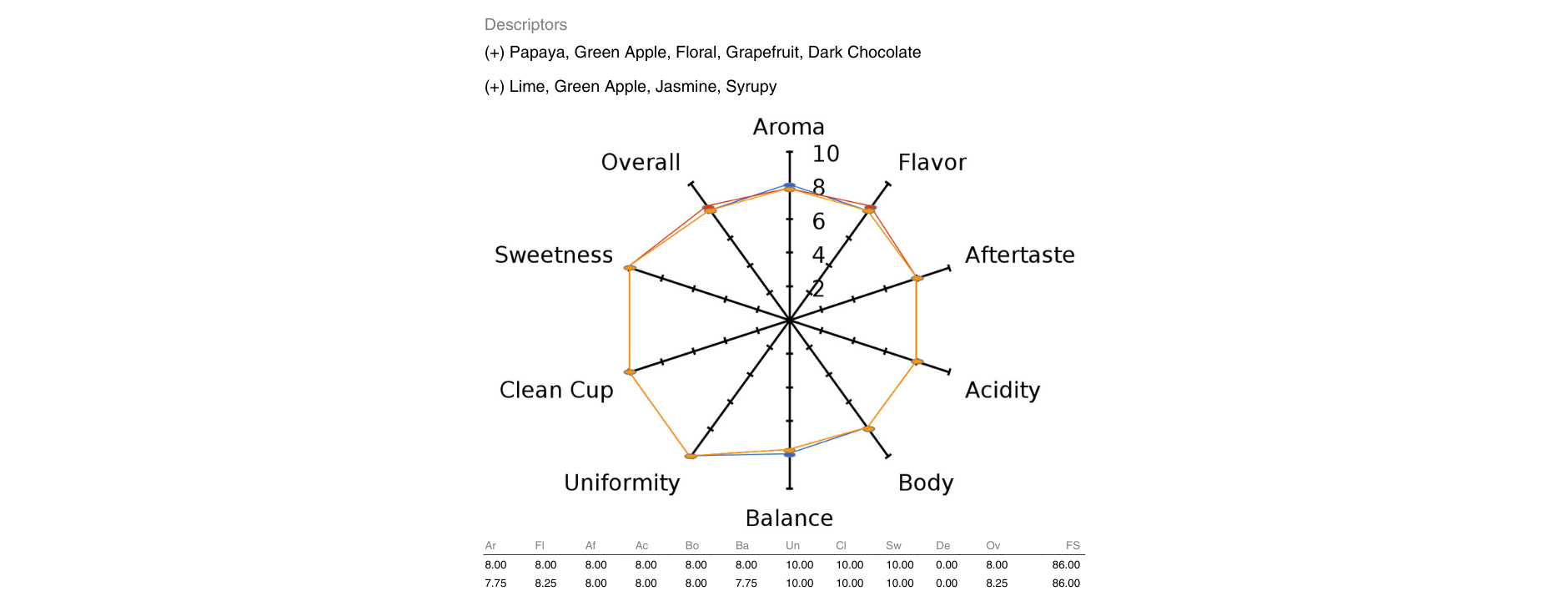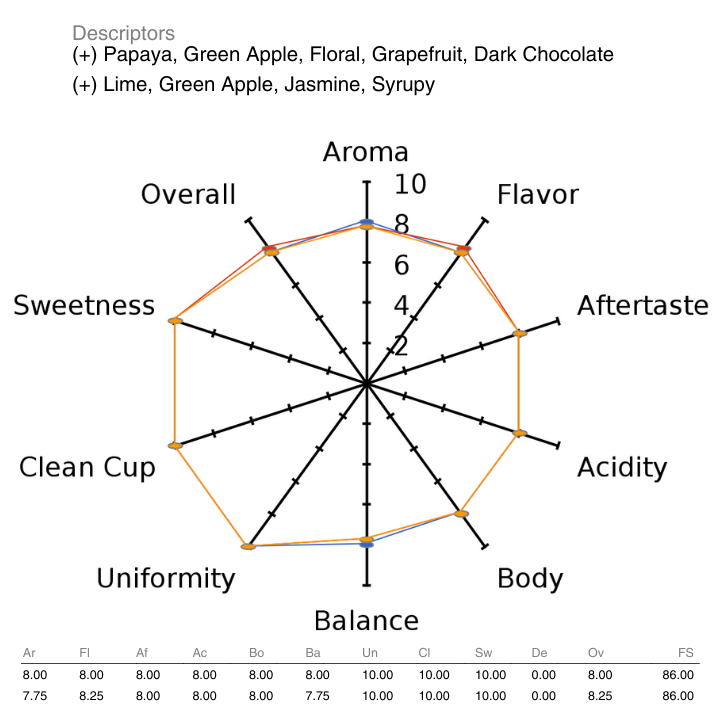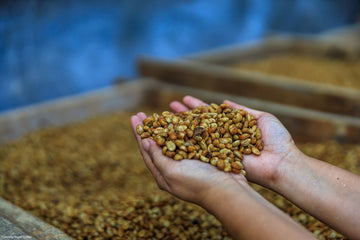Kenya Muranga Gatagua AA
Captain's Gold top 3! The one we've all been waiting for has finally arrived. It's the bold, syrupy, rich double A we've been dreaming of! This auction lot from the Gatagua factory is an instant classic with big notes of refreshing green apple, juicy papaya, crisp lime, intoxicating jasmine and rich dark chocolate.
It has been FAR too long since we’ve featured a new Kenyan coffee, so we’re making up for it with an AA auction lot that will knock your socks off! It’s got everything we’ve been looking for: huge body, syrupy texture, vibrant brightness and that classicly Kenyan dry finish. And it’s absolutely dripping with flavor. We got big notes of refreshing green apple, juicy papaya, crisp lime, intoxicating jasmine and rich dark chocolate. All my favorite adjectives! This is the one you (and we) have been waiting for. Enjoy!
Reminder! This coffee is raw, you must roast it before brewing
Arrival Date: April 4th, 2025. Harvest Season: 2024-2025, packed in EcoTact
Acidity & Brightness: Bright and fairly sweet
Balance & Finish: Well balanced with a dry, tannic finish
Body & Texture: Rich and Full bodied with a syrupy texture
Flavors: Green apple, papaya, lime, jasmine & dark chocolate
Grade: Grade AA, grown at 1700 – 1800 masl
Processing: Pulped and fermented for ~48 hours then fully washed and dried on raised beds. Shade dried for 14-21 days depending on ambient humidity.
Grower: 845 smallholder farmers organized around the Gatagua Factory
Region: Murang’a, Central Kenya
Varieties: SL28 & SL34
Recommended Roast Range: City to Full City+ (Light-medium to medium-dark)
We like this coffee best at City + (light-medium), or as 1st crack is trailing off, but you can go a little lighter or darker depending on the flavors you want to accent. Lighter roasts will have more lime and citrus acidity as well as more emphasis on florality. While we rarely recommend darker roasts with Kenyan coffees, this one seems to handle it surprisingly well. Medium to medium dark roasts will curtail the florality and acidity while adding rounded sweetness and enhancing chocolate tones. Be aware that by the time you hit 2nd crack, you will almost certainly lose any floral tones.
Sucafina - "Gatagua Factory is run by Gatagua Farmers Cooperative Society (FCS). Over 845 members deliver cherry to the station. Members of Gatagua FCS cultivate coffee at 1,600 to 1,800 meters above sea level and Gatagua Factory takes every action to preserve the exceptional quality of the cherry delivered by their members. Gatagua means “gathering” in Kikuyu, a local Bantu language. The cooperative was formed by 3 cooperatives that split off from another cooperative and “gathered” together to form a new cooperative society. The farmers in Gatagua FCS struggled for years with low yields and poor quality, but their partnership with Kahawa Bora beginning in 2019 has helped them improve yields and quality while increasing the prices their members receive for cherry.
With help from, Kahawa Bora, Gatagua provides training to farmers in improved pruning, cultivation and harvesting methods. Kahawa Bora’s field staff have also performed soil analysis on members’ plots to inform correct input application, which helps improve yields and quality while reducing cost and environmental impact. This focus on high quality at all stages of cultivation and processing has increased cup scores from 85 to 87-88+ in a short period of time, while also nearly quadrupling their total production.
Farmers delivering to Gatagua cultivate primarily SL28 and SL34 in small coffee gardens that are, on average, smaller than 1 hectare. ‘SL’ varieties are cultivars originally released by Scott Agricultural Laboratories (SAL) in the 1930s and 1940s. They soon became the go-to trees for many growers in Kenya due to their deep root structure, which allows them to maximize scarce water resources and flourish even without irrigation. They are cultivated with a serious eye to sustainability and Good Agricultural Practices, with minimal environmental impact where possible.
Smallholders selectively handpick only ripe cherry and deliver it to Gatagua Factory. At intake, the Cherry Clerk oversees meticulous visual sorting and floating, accepting only dense, ripe cherry. After intake, cherry is pulped and fermented for approximately 48 hours. Following fermentation, coffee is washed clean water and soaked for 12 hours. Then, parchment is laid to dry on raised beds. Workers rake parchment frequently to ensure even drying. They cover drying parchment during the hottest time of day, to maintain slow, even drying and at night, to shelter parchment from moisture. It takes approximately 14 to 21 days for parchment to dry.”
